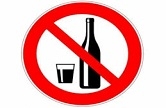HYPNOSIS FOR THE TREATMENT OF ALCOHOL ADDICTION
The advantages of a tailored therapy
From a clinical standpoint, those who are labeled as “addicted” are patients who have lost control over their consumption behaviors. For instance, because of the development of tolerance and to avoid the risk of suffering from potentially impairing withdrawal symptoms, these patients feel the urge to take larger doses for longer periods of time compared to what they initially planned. This kind of process can even lead to severe consequences on the person’s psychophysical health.
The situation may noticeably alter the patients’ existence because they tend to increase the time spent in activities aimed to acquire the substance or related to it, leading to a progressive deterioration of their work and relational life.
For these reasons and because of the fact that behaviors related to substances can have great social costs – such as the potential consequences of driving while intoxicated – the treatment of these conditions greatly polarize the attention of both institutions and mental health professionals. The World Health Organization reports that approximately 140 million people in the world suffer from alcohol addiction1. Other reports point out that around 10% and 20% of the European male population and around 5% and 10% of the female one will fulfill the diagnostic criteria of alcoholism at least once in their lifetime2.
Research investigating the potential of hypnosis in the treatment of substance addictions is still developing and, even though the number of publications on the subject is still limited, some authors3 consider it as a promising method in terms of efficacy and briefness as long as applied following specific guidelines.
An example comes from a study published on the American Journal of Clinical Hypnosis in which 18 patients addicted to alcohol have been treated with an intensive hypnotic protocol4. Such strategy included several techniques such as individual hypnotic sessions (sessions in which the therapist leads the patient through the hypnotic experience) and the teaching of self-hypnosis. Unlike other authors5, who chose to give to patients recordings of their voices so that they could listen to them at home, in this study, highly personalized self-hypnosis techniques were taught so that participants could use them whenever they felt the need during the day.
Results show that a year after the end of treatment, which lasted 20 sessions at most, 12 patients over 18 were teetotal, and 2 of them used alcohol moderately. In other words the results obtained in 14 patients over 18 remained stable over time. The author believes that this success is possible by focusing on the individuality of each patient. Addictions and the consequences of withdrawal, in fact, can cause a wide range of symptoms such as difficulties in thinking clearly, memory problems, hyper-reactivity or emotional numbness, sleep disturbances, physical coordination problems, stress sensitivity, etc6. Because of the diversity of these manifestations it is important to tailor the intervention on the patients’ specific needs in order for the treatment to be successful.
This study is a good example of how hypnotic techniques can be used to treat a condition that is highly invasive on everyday life. Furthermore it focuses on an aspect that is usually overseen by research on this topic. The treatment in fact, while still based on a precise technical model, was tailored on the needs of each patient, a strategy usually replaced by the rigid application of highly standardized therapeutic protocols.
[1] Dr Gro Harlem Brundtland (19 February 2001). "WHO European Ministerial Conference on Young People and Alcohol". World Health Organisation.
[2] "Alcoholism". Encyclopædia Britannica. 2010.
[3] Orman, D. J. (1991). Reframing of an addiction via hypnotherapy: A case presentation. American Journal of Clinical Hypnosis, 33(4), 263-271.
Page, R. A. & Handley, G. W. (1993). The use of hypnosis in cocaine addiction. American Journal of Clinical Hypnosis, 36(2), 120-123.
Walsh, B. J. (2003). Utilization sobriety: Brief, individualized substance abuse treatment employing ideomotor questioning. American Journal of Clinical Hypnosis, 45(3), 217-224.
[4] Potter, G. (2004). Intensive therapy: Utilizing hypnosis in the treatment of substance abuse disorders. American Journal of Clinical Hypnosis, 47, 1, 21-28.
[5] Pekala, R. J., Maurer, R., Kumar, V. K., Elliot, N., C., et al. (2004). Self hypnosis relapse prevention training with chronic drug/alcohol users: Effects on self-esteem, affect and relapse. American Journal of Clinical Hypnosis, 46, 4, 281-297.
[6] Gorski, T. T. & Miller, M. (1986). Staying sober. Independence, Mo: Herald House/Independence Press.

